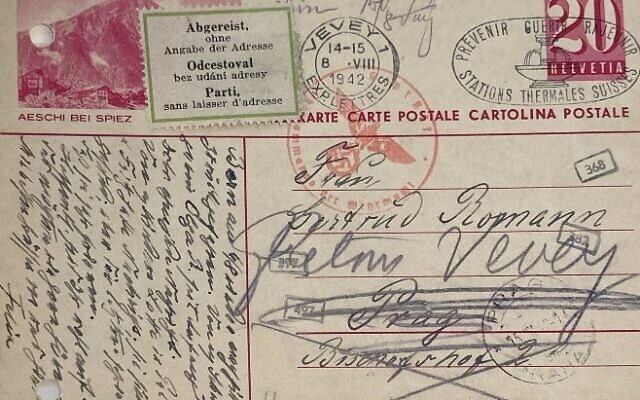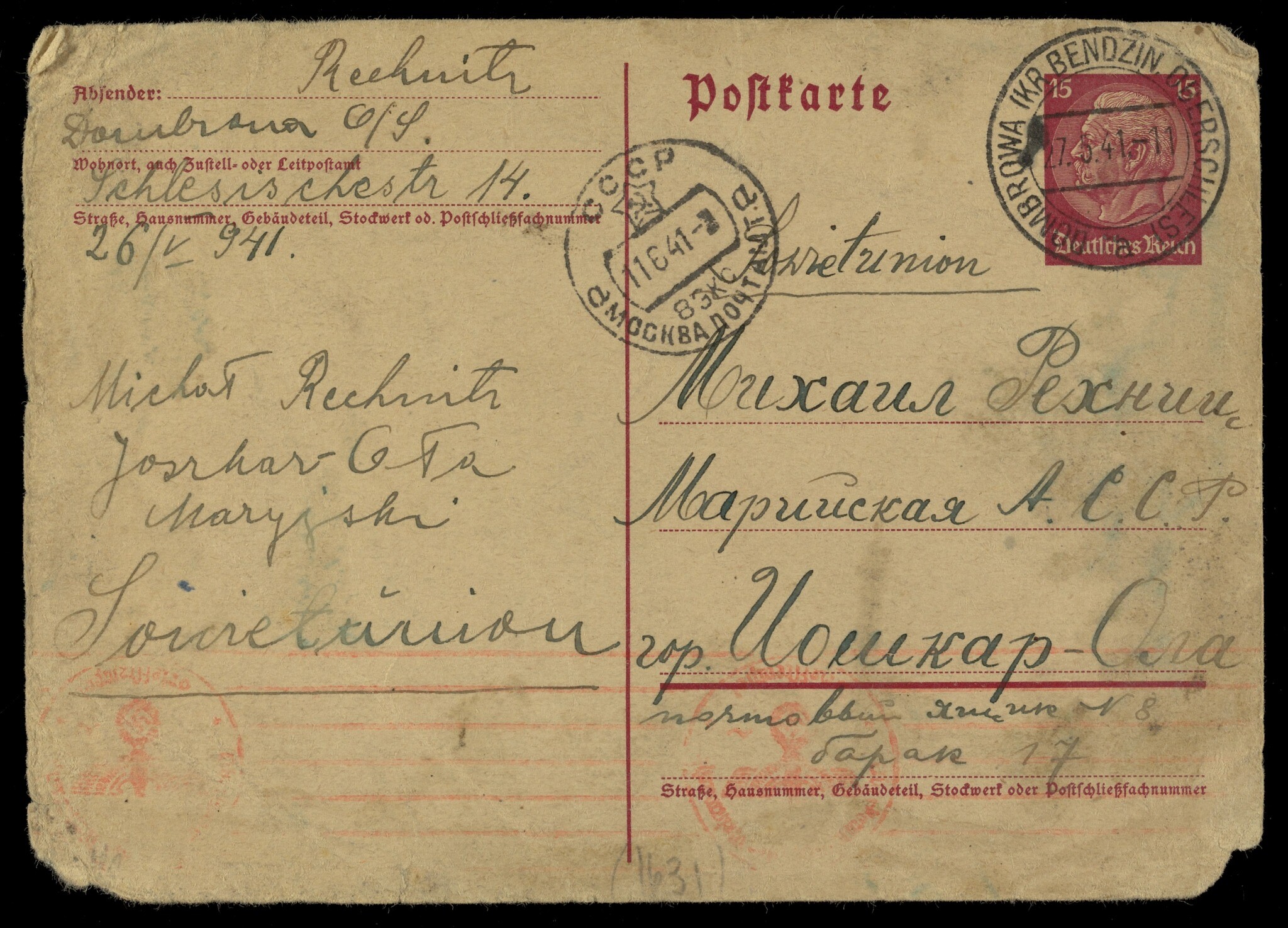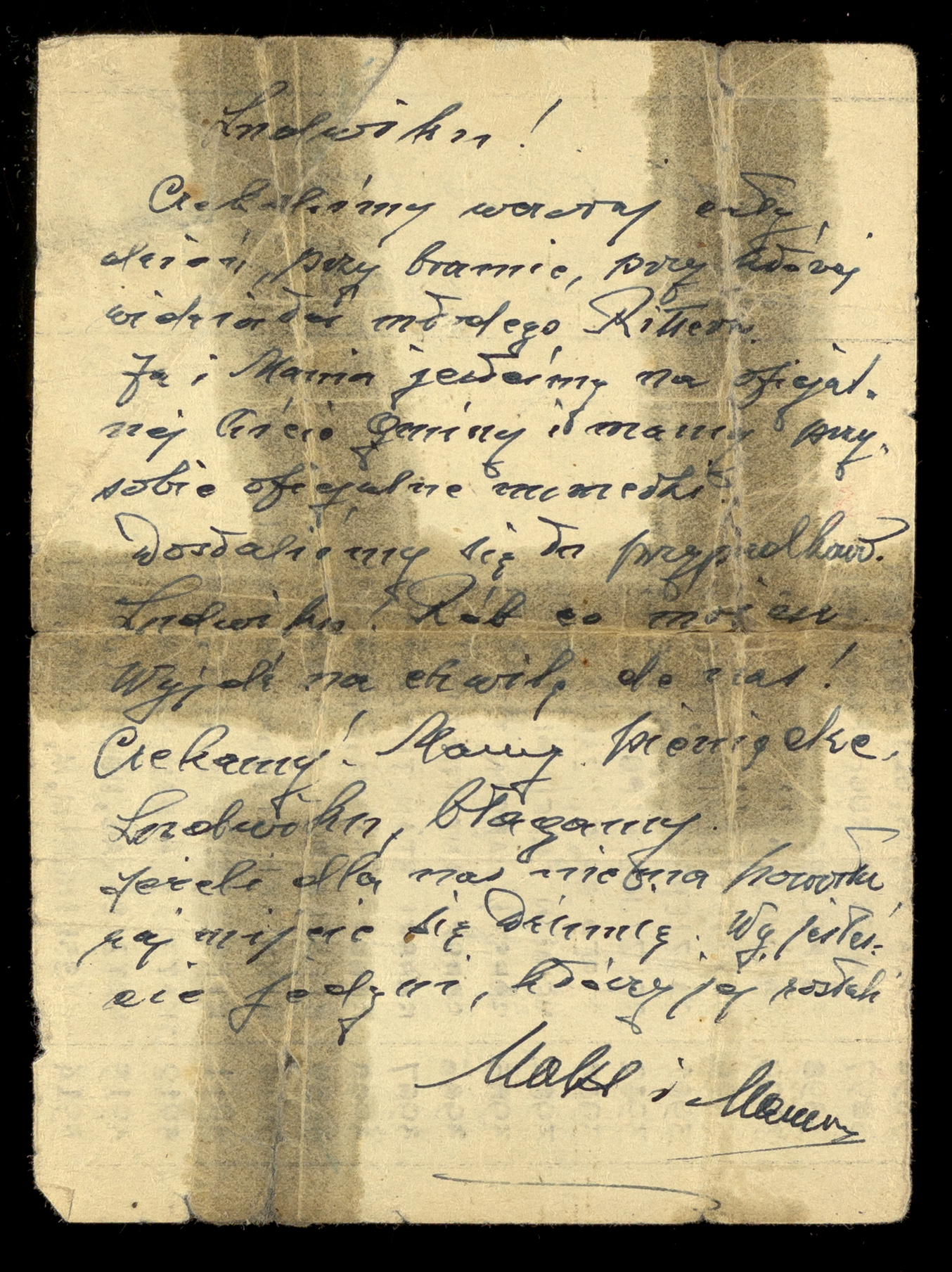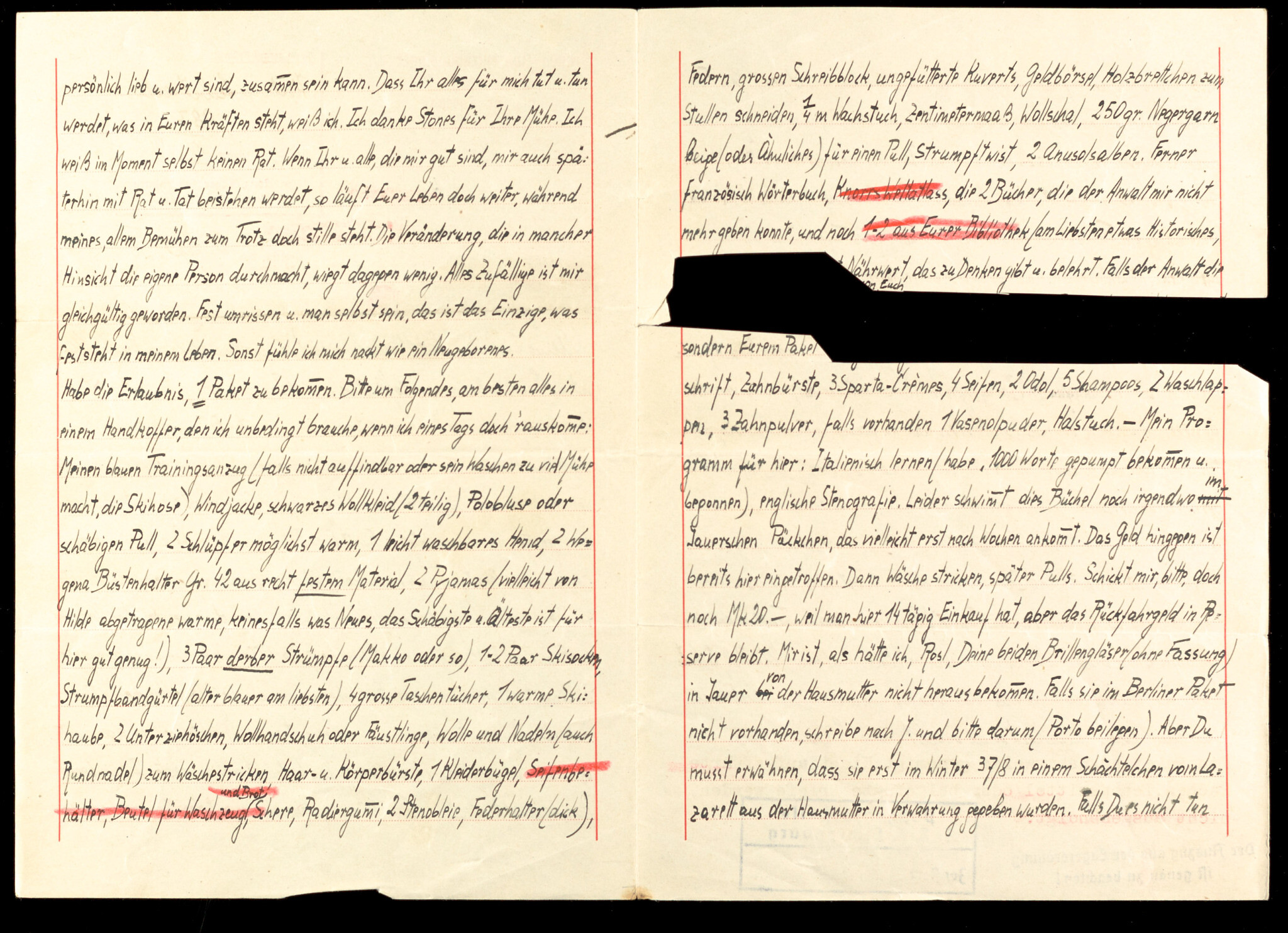‘Help, help, help…’ Heartbreaking Holocaust letters on display for first time
Remarkable exhibition entitled 'Holocaust Letters' at the Wiener Holocaust Library demonstrates how "the history of the Shoah is still being written”.
Jenni Frazer is a freelance journalist

More than 60 historic letters are on display at an extraordinary exhibition at the Wiener Library in London.
When Vic Eckstein, formerly of Bradford and now living in Haslemere, Surrey, found a cache of 76 letters written by his late father, Arnost, he brought them to the Wiener Holocaust Library.
And what the letters revealed enabled Vic, as he says, “to meet my father all over again”.
The Eckstein material — donated as recently as 2020 — form part of a remarkable exhibition about to open at the Wiener Library, ‘Holocaust Letters’. The more than 60 letters on display are, in many cases, the last words of Jewish victims of Nazi genocide — never seen before in public, but all culled from the Wiener’s vast archives.

The letters are just a small sample of the thousands of pieces of original material collected by the Wiener Library since it was founded in 1933.
Curated by Christine Schmidt and Sandra Lipner, the exhibition is a project of the Holocaust and Genocide Research Partnership, which comprises the Wiener Holocaust Library and the Holocaust Research Institute at Royal Holloway, University of London.
As Sandra Lipner observed: “So often these stories start with ‘I found a suitcase, or a box, or a bag’.” Even today, in 2023, the Wiener receives upwards of 50 such donations a year, leading the researchers to conclude that “the history of the Shoah is still being written”.

Letter after letter in the archives show that, contrary to what has generally been believed, the Jews of Nazi-occupied Europe were all too aware of their eventual fate. Many letters and postcards in the Wiener collection speak of “if we go to Poland” — a way of saying that they were unlikely to return.
Perhaps the most dramatic of the letters on show are those written, in Polish, by Maria and Maximilian Wortmann to their cousin, Ludwik, and their daughter, Dziunia. “Ludwik, we beg you. If there is no return for us, take care of Dziunia. You are the only ones remaining…”
The couple wrote to their daughter: “Dear Dziunius! Obviously this is our fate. Dziunius, be brave and cope…farewell, and go courageously into life!”
The fact that Dziunia survived the Holocaust is remarkable in itself — she died in London, aged 93, in 2015 — but the survival of the letters are what the Wiener Library calls “a mystery and a miracle”. For the letters were written by Maria and Max as they stood on the railway sidings at the Warsaw Ghetto, waiting to be deported to Treblinka, where they were murdered. No-one knows how the letters reached Ludwik and Dziunia, but she kept them all her life, the last vestiges of her family.
Each letter reflects a different tragedy, of separation and the destruction of family life. Through a mixture of detective work and deep dives into the archives, the curators, who have taken more than a year to assemble the exhibition, are learning how people exchanged information throughout the Holocaust years, and after.

Here, for example, is a series of letters by a feisty political activist, Hedwig Leibetseder, who wrote, in German, from a women’s camp which was the precursor of Ravensbruck.
She wrote to her mother and sister in 1938 but almost every letter has large physical chunks missing as the camp censor scissored out passages which related to her treatment. Undaunted, Hedwig, who survived the Shoah, instructed her family: “Emigrate — and write!” She meant, says Sandra Lipner, that everyone should tell their relations what was happening to the Jews.
One letter on display says, “Help, help, help…” and then abruptly ends.
One of the most heartbreaking stories is that of Arnost Eckstein, a Czech Jew who survived the camps and returned to Prague at the war’s end. He had been separated from his wife and children in Auschwitz, but, by chance, in Prague, saw a Soviet propaganda film in which he thought he had glimpsed his daughter, Jana.
Letters sent during and after the Holocaust give us a unique vantage point to see the events unfolding from Jewish victims’ point of view.
In July 1945 he had been writing to his sister, Marta, in London, telling her that nobody from their family had survived. But, seized by the hope that Jana had made it, Arnost spent the rest of his life trying to find her.
He did not succeed; he moved countries several times, ending up in Britain where he remarried. Vic Eckstein is the son of Arnost’s third marriage, and until his father’s letters were translated, had no idea that there had been a daughter of his father’s first marriage. Arnost died in 1969 and now Vic Eckstein has taken up the search.
Christine Schmidt told Jewish News: “Letters sent during and after the Holocaust give us a unique vantage point to see the events unfolding from Jewish victims’ point of view.
“These messages, never intended for the wider public, provide a painful reminder of how the events of the war and Holocaust intruded into, and very often destroyed, individual lives.
“They show how people coped and held on to lines of communication, in order to make sense of what was happening to them. Working with family document collections has been a tremendous privilege, and the library’s vital role in preserving these precious records is highlighted by our exhibition”.
The letters, says Sandra Lipner, “are very often trying to describe the indescribable”. People could not make sense of what was happening to them and the words “Holocaust” and “genocide” did not then exist. But the researchers also believe that the correspondence will fill a need for the Second Generation in “a post-survivor world”, enabling victims’ families to understand more clearly the effect on ordinary people, Jews like us, of Nazi persecution.
Holocaust Letters, open to the public, is a free exhibition running at the Wiener Holocaust Library from February 22 to June 16.

Thank you for helping to make Jewish News the leading source of news and opinion for the UK Jewish community. Today we're asking for your invaluable help to continue putting our community first in everything we do.
For as little as £5 a month you can help sustain the vital work we do in celebrating and standing up for Jewish life in Britain.
Jewish News holds our community together and keeps us connected. Like a synagogue, it’s where people turn to feel part of something bigger. It also proudly shows the rest of Britain the vibrancy and rich culture of modern Jewish life.
You can make a quick and easy one-off or monthly contribution of £5, £10, £20 or any other sum you’re comfortable with.
100% of your donation will help us continue celebrating our community, in all its dynamic diversity...
Engaging
Being a community platform means so much more than producing a newspaper and website. One of our proudest roles is media partnering with our invaluable charities to amplify the outstanding work they do to help us all.
Celebrating
There’s no shortage of oys in the world but Jewish News takes every opportunity to celebrate the joys too, through projects like Night of Heroes, 40 Under 40 and other compelling countdowns that make the community kvell with pride.
Pioneering
In the first collaboration between media outlets from different faiths, Jewish News worked with British Muslim TV and Church Times to produce a list of young activists leading the way on interfaith understanding.
Campaigning
Royal Mail issued a stamp honouring Holocaust hero Sir Nicholas Winton after a Jewish News campaign attracted more than 100,000 backers. Jewish Newsalso produces special editions of the paper highlighting pressing issues including mental health and Holocaust remembrance.
Easy access
In an age when news is readily accessible, Jewish News provides high-quality content free online and offline, removing any financial barriers to connecting people.
Voice of our community to wider society
The Jewish News team regularly appears on TV, radio and on the pages of the national press to comment on stories about the Jewish community. Easy access to the paper on the streets of London also means Jewish News provides an invaluable window into the community for the country at large.
We hope you agree all this is worth preserving.





















